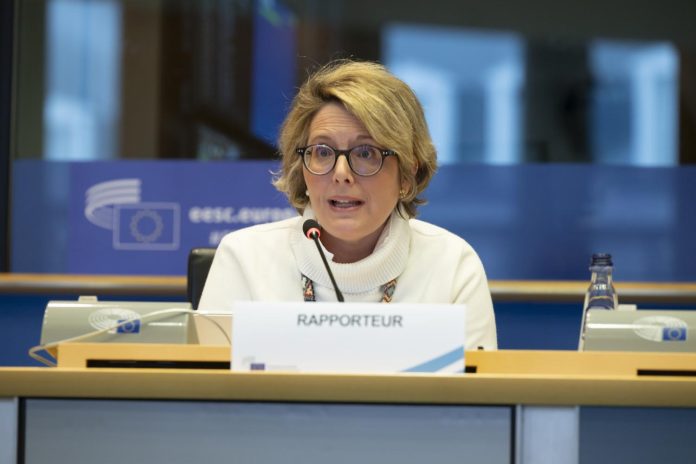Isabel Yglesias Julià, EESC Member and Rapporteur for the EESC opinion on A competition policy at the heart of EU’s competitiveness, discusses the advancement of the European Single Market in terms of breaking barriers and ensuring fair competition
The Single Market marked its 30th anniversary in 2023. During the celebrations, it was continuously praised as ‘the crown jewel of European integration’, ‘the source of common wealth’ or ‘the natural market for European Union (EU) companies’. Laudations were accompanied by repeated calls to strengthen the Single Market and a wide array of proposals from diverse stakeholders on how to deepen its integration.
In 2024, this momentum was further amplified by the publication of reports from former Italian prime ministers Enrico Letta and Mario Draghi, both of which highlighted the connection between Europe’s lack of competitiveness and the incompleteness of the Single Market. Persistent barriers have hindered investment and stifled the innovation needed to boost growth and productivity across the EU.
This assessment has been underscored by a recent IMF analysis, which reveals striking figures: in 2020, trade costs within the EU were equivalent to a 44% tariff for manufacturing and as high as 110% for services. (1) Notably, 60% of the barriers to cross-border service provision and labour mobility identified over 20 years ago still remain in place today, continuing to impede the full realisation of the Single Market.
Making the Single Market a central priority
The European Commission has responded to this widespread demand by making the Single Market a central priority for its new term, and presented a new Strategy to revamp it at the end of May. This strategy provides some elements to elevate the Single Market to a new level, combining ambition in some areas with caution in others.
It is widely recognised that the main obstacles to the Single Market’s consolidation stem from national-level barriers. Therefore, while the Commission is proposing targeted actions, the strategy’s success will ultimately depend on the openness of all stakeholders, especially national governments, and their full engagement in its implementation.
Indeed, elevating the Single Market to the next level needs better implementation, improved digital coordination between national authorities, greater regulatory harmonisation, enforcement of EU Single Market rules, and avoiding gold-plating. Measures such as the 28th corporate regime, which aims to harmonise corporate rules across Member States, could serve as transformative game changers. If we fail to act decisively now, it will be difficult to imagine a more favourable opportunity to achieve these goals in the future.
Meanwhile, the EU is increasingly focusing on industrial policies, amid growing debate over the future role of competition rules, which have proven to be an essential tool to secure consumer welfare and the level playing field within the Single Market.
While there is consensus on the need for reform, opinions diverge sharply on implementation. Professor Letta advocates a stronger and more integrated Single Market, enabling companies to scale and consolidate while safeguarding competition and consumer rights: achieving real market integration in the electronic communications, finance and energy sectors is key if the EU’s economy is to thrive.
Professor Draghi, instead, calls for the competition regulatory framework to be modernised, arguing that outdated rules hinder EU firms’ ability to compete globally amid geopolitical shifts and technological disruption. Central to this debate is also the role of State aid in supporting the EU’s competitiveness.
Competition policy must be flexible enough to accommodate such strategic interventions while preserving a level playing field for all market participants. While current rules remain broadly effective and fit for purpose, more clarity is needed regarding enforcing the new tools recently adopted by the Commission. There is certainly an urgent need to streamline administrative procedures and re-evaluate traditional policy instruments to address emerging challenges.
Merger control must evolve to reflect today’s economic imperatives better. Traditional merger assessments often overlook critical factors, such as infrastructure investments, innovation ecosystems and sustainability goals. Innovation-driven mergers must be scrutinised particularly closely to prevent potential anti-competitive practices while fostering dynamic markets.
State aid can play a crucial role in supporting EU companies’ efforts to transition towards more sustainable and innovative business models. However, ensuring it is used efficiently is key, and public support should prioritise projects that generate spillover effects and reinforce European value chains, which have seen limited integration since the 2010s. A truly coordinated and European approach to State aid could transform it into a catalyst for a more competitive and resilient EU economy.
Unlocking the full potential of the Single Market
Undoubtedly, competition policy and State aid control are indispensable tools for safeguarding EU competitiveness and strengthening the Single Market. A larger, more seamlessly integrated Single Market will drive cross-border investment, innovation, and the benefits of scale.
By deepening European integration through a real Single Market, particularly in critical sectors like energy, digital infrastructures and finance, we can reinforce economic resilience, including through robust European value chains, which remain pivotal to the EU’s global standing.
These challenges demand decisive policy action and political will. It is essential to leverage the current momentum to address persistent fragmentation and regulatory bottlenecks and unlock the full potential of our Single Market so that it can compete in an era of geopolitical and technological upheaval.











